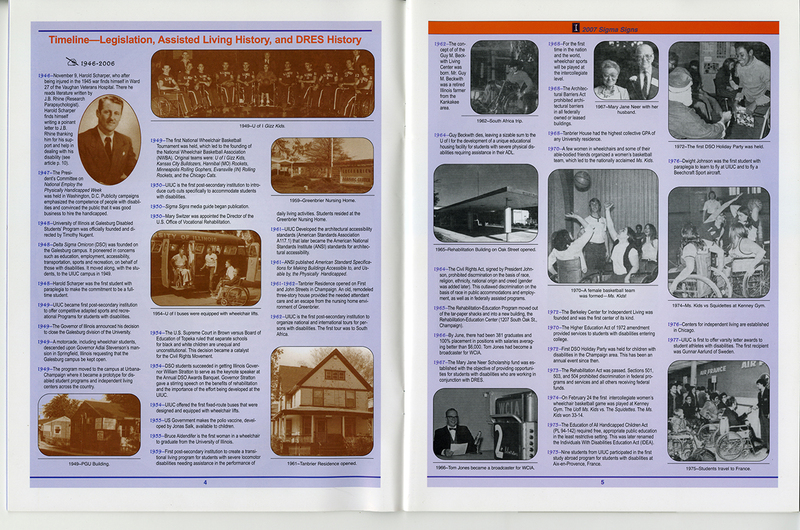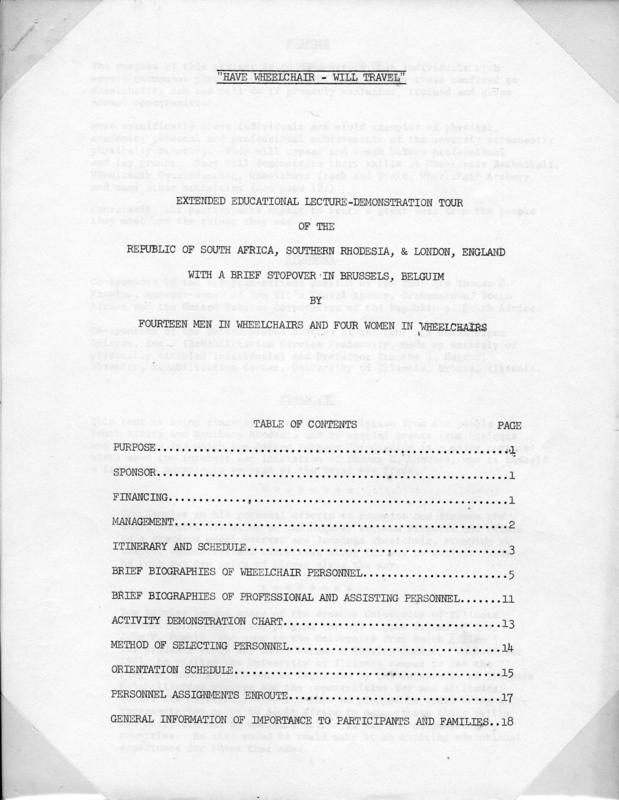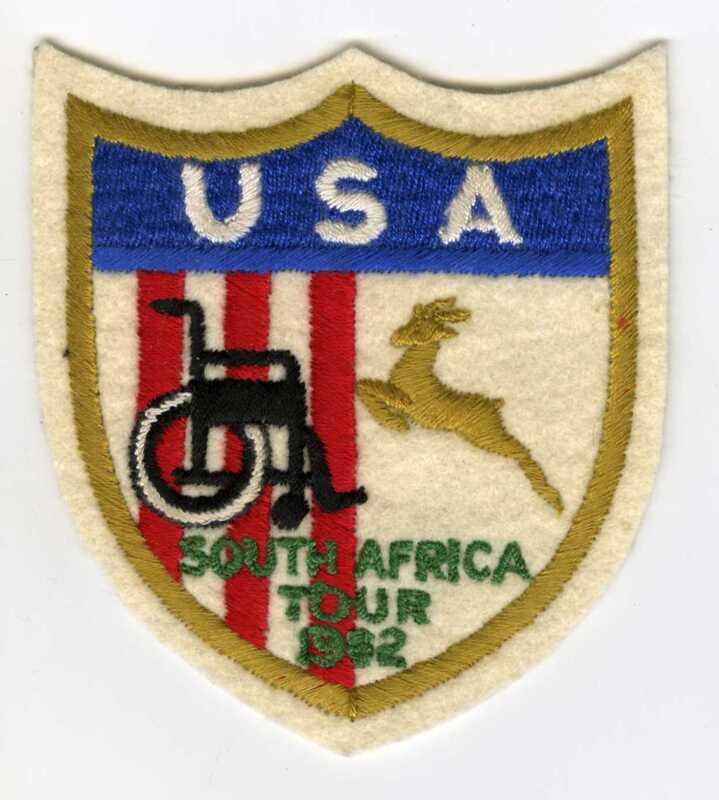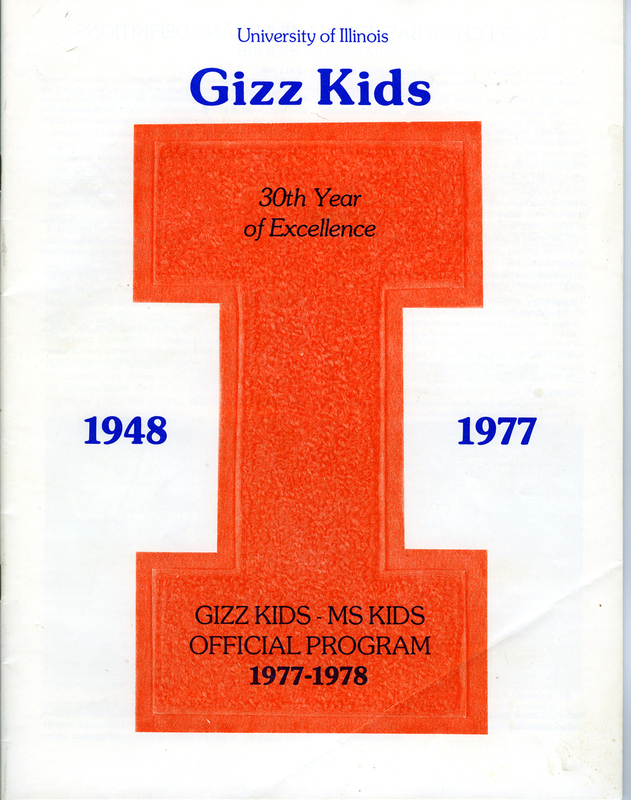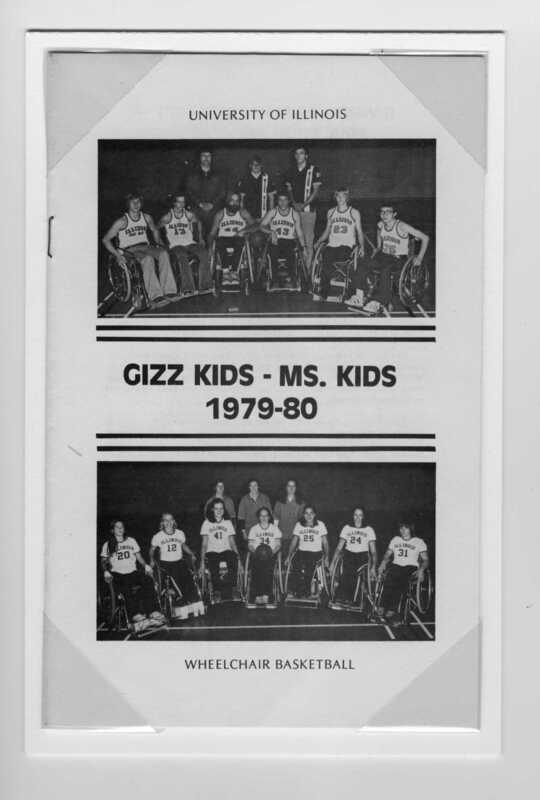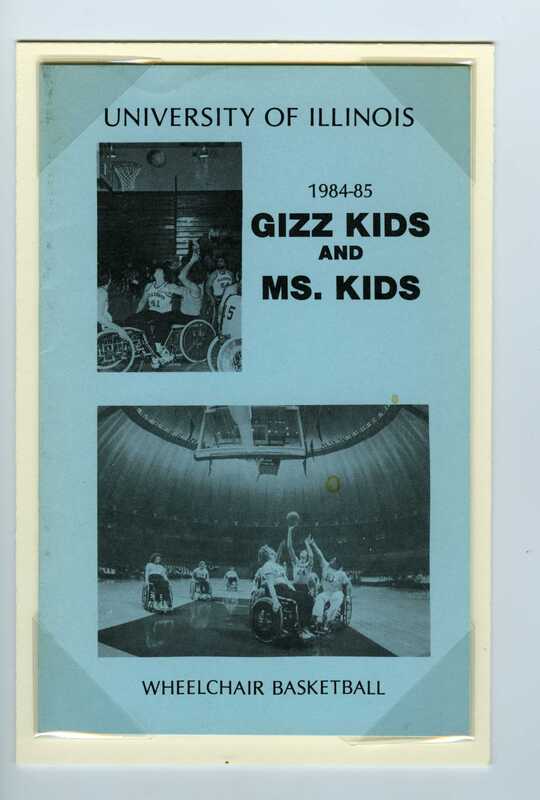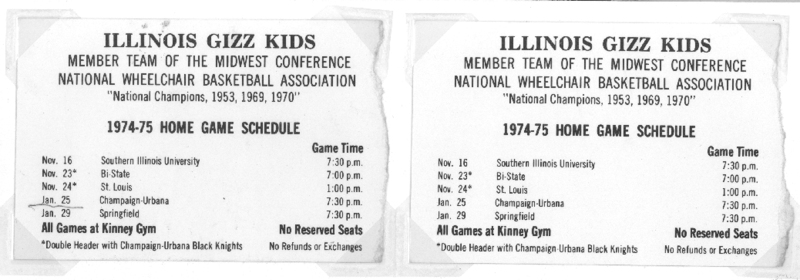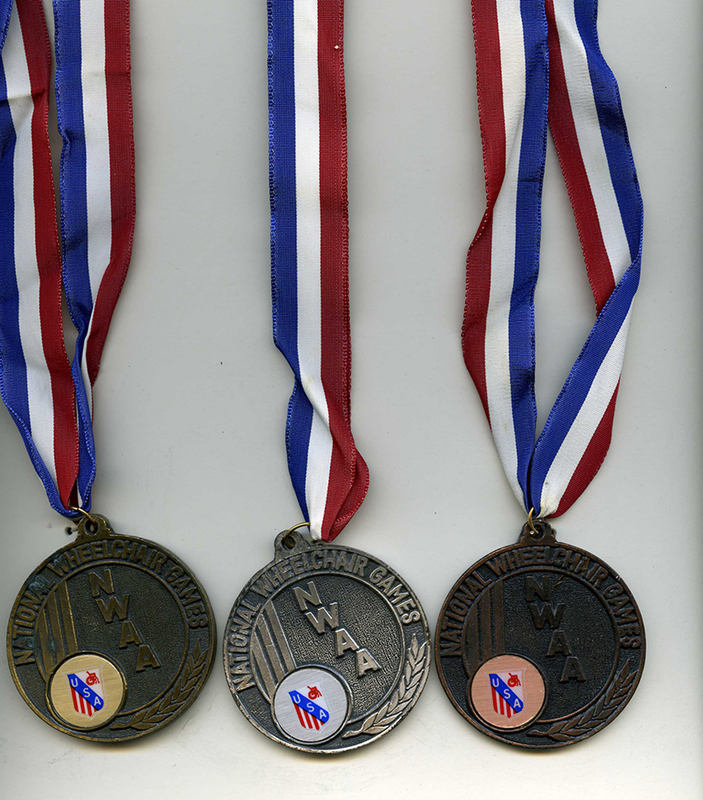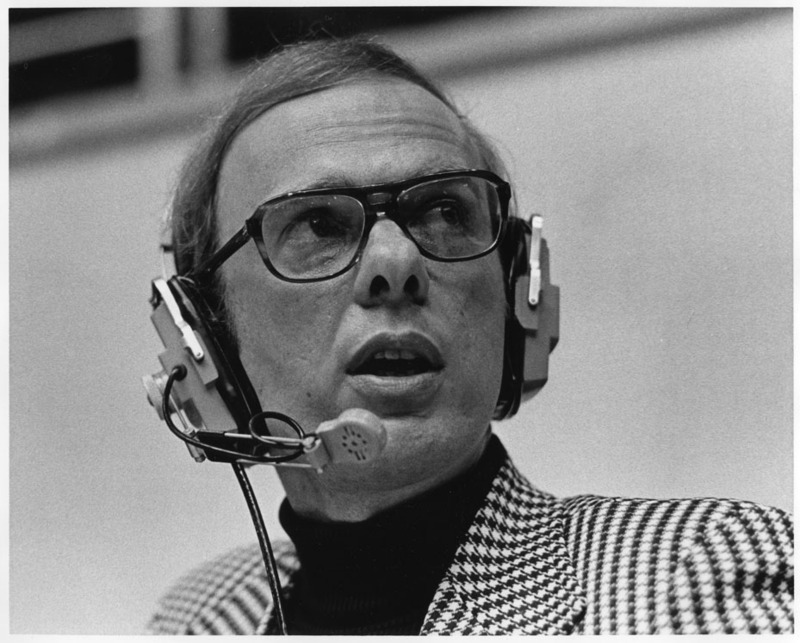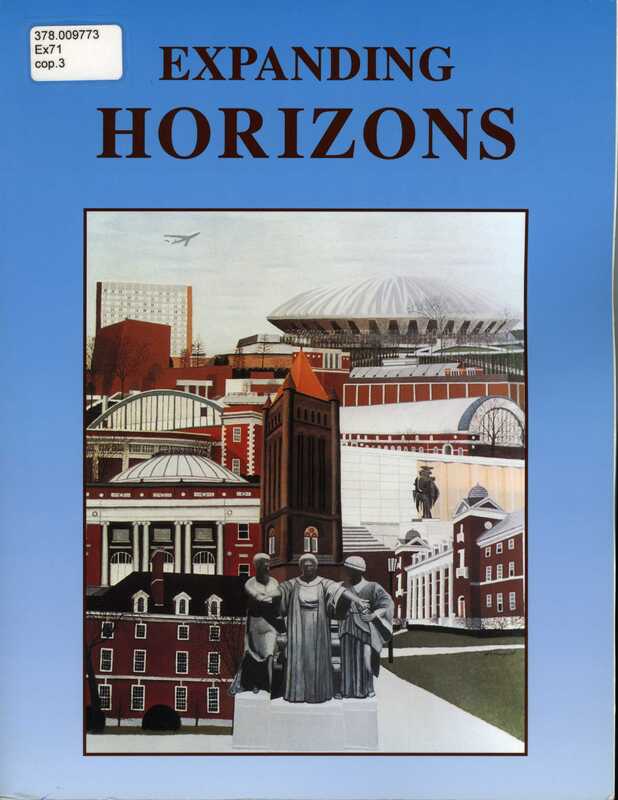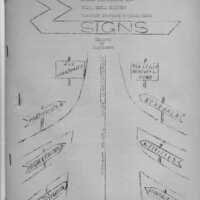Part Four: Celebrating Achievements
As the first post-secondary disability support program in the world, DRES has been associated with many innovations including:
- The seminal research which led to the development of the first architectural accessibility standards that would become the American National Standards Institute Standards
- The first wheelchair accessible fixed route bus system
- The first accessible university residence halls
- The first university service fraternity and advocacy group comprised of students with disabilities (Delta Sigma Omicron)
- The first collegiate adapted sports and recreation program for students with disabilities, which also produced the first wheelchair athlete in the world to win an Olympic Gold Medal (Sharon Rahn Hedrick)
The traditional student clientele for DRES has been individuals with mobility and sensory disabilities. In recent years DRES has seen an increase in students with learning disabilities. While recognizing its legacy of accomplishments, DRES remains committed to developing new strategies and programs to ensure these individuals, whatever their disability, be active participants in the rapidly changing social, political, economic, and technological context of the 21st century.
A timeline of key events in legislation, assisted living, and DRES history from the 2007 issue of Sigma Signs.
In 1962, 13 graduates from the University of Illinois were selected, along with four other wheelchair athletes, to tour the Republic of South Africa and Northern and Southern Rhodesia. The month-long tour of 33 cities and towns featured daily athletic exhibitions in a number of wheelchair sports including football, basketball, track and field, archery, and swimming.
In addition to daily athletic exhibitions, the participants toured gold mines, diamond works, vineyards, and an ostrich farm. They also attended a concert in limestone cave renown for its acoustics and a performance by Zulu War Dancers. Below, you will find a commemorative patch celebrating the 1962 “Have Wheelchair-Will Travel” tour of South Africa, as well as Gizz Kids basketball programs and game tickets.
A commemorative patch celebrating the 1962 "Have Wheelchair-Will Travel" Tour of South Africa.
Gizz Kids and Ms. Kids Wheelchair Basketball Programs 1977-78, 1978-79, 1979-80, 1982-83, 1984-85
Gizz Kids Basketball Tickets, 1974-75 Season
Tim Nugent and three DRES students prior to boarding an Air France jet for Paris and a semester of study abroad. Six students with disabilities from the University of Illinois participated in a pilot study program jointly sponsored by the U of I and the Franco-Scandinavian Institute in Aix-en-Provence, France, which had special facilities for students with disabilities.
Gold, silver, and bronze medals from the National Wheelchair Games held in New York City in 1979.
Sharon Hedrick, winner of the Lipton Metric Mile, at the 24th National Wheelchair Games held at the U of I in 1980. In 1984, Hedrick (1982 MS Health and Safety Education) became the first wheelchair athlete to win a gold medal in wheelchair track at the Summer Olympics in Los Angeles. She won the 800 meter race in world record time. In 1985 Hedrick became the first wheelchair athlete to receive the Southland Olympia Award. This award was created to recognize athletes who excel in sport and embody dedication to the amateur ideal. In 1988, Hedrick won another gold medal in the 800 meter race in the Olympic Games in Seoul, South Korea.
Tom Jones, pictured here doing commentary for a NWBA basketball game, played wheelchair basketball for both the U of I (1959 BA Communications, 1971 MA Television) and the Champaign-Urbana Black Knights. He was a world-record holder in wheelchair track competitions for the U of I. His success extended to his professional career as well-from 1957 to 1975 he held several positions for WCIA Television, including writer, producer, director and sports director. He hosted an early morning talk show called "Sun Up" and also announced play-by-play and color commentary for Big Ten basketball for television and Big Ten football for radio. In 1971, he was named Illinois Handicapped Citizen of the Half-Century.
In 1991, Jean Driscoll (1991 BA Speech Communication, 1993 MS Rehabilitation Administration) defended her Boston Marathon wheelchair title in world record time. The Official Program of the Boston Marathon featured her quest for seven straight victories in 1996. She prevailed again in 2000, bringing her total number of victories to eight. Driscoll also distinguished herself in the Olympics, earning silver medals in the 800 meter race in 1992 in Barcelona, Spain, and in 1996 in Atlanta, Georgia. In 1991 she was the first wheelchair athlete named the Women's Sports Foundation "Amateur Sportswoman of the Year."
Expanding Horizons, published in 1998, is a commemorative history of the events, people, and accomplishments of the first 50 years of DRES at the University of Illinois.
Reflections on DRES
Parents of DRES graduates often wrote Tim Nugent and the university administration to share news of professional success and to express continued support for the program.
In a letter to President David D. Henry, dated April 15, 1962, Karl F. Smith noted that his daughter Charlotte had found employment with NASA as a physiologist:
The opportunity would not have been possible except for the University of Illinois and the efforts of Doctors Nugent and Sargent, and others of the Rehabilitation and Physiology Departments, respectively. It appears to me that the handicapped are such in only certain respects; that many of them compensate in other, less apparent areas. . . . Certainly they have aspirations equal to the rest of us. It is to be hoped that the University will see fit to continue and expand its presently fine effort on behalf of the handicapped students.
In a letter to Tim Nugent, dated September 6, 1972, the mother of Evelyn Moore writes about her daughter's experiences at Illinois:
When she was first injured and we realized she would be paralyzed it seemed to us that she would be confined at home for the rest of her life. Because of her determination and your comprehensive approach at the U of I Rehabilitation Center, she learned to take complete physical care of herself, even competing in the international "Olympic" games for the disabled, earned her college degree at U of I and is now employed as a professional social worker after passing the Illinois State civil service examination.
A News-Gazette editorial, dated October 27, 1965, summarizing the value of the Rehabilitation-Education Center:
We know that these students are almost wholly self-sufficient. That in many instances they can take better care of themselves than we do. That in the few times when they do need help, they will ask for it just as we do.
This is the real contribution of the Rehabilitation-Education Center-not the education of the relatively few students under its administration each year, but for the world to accept them as people and useful citizens.
This, they have proved they are.
